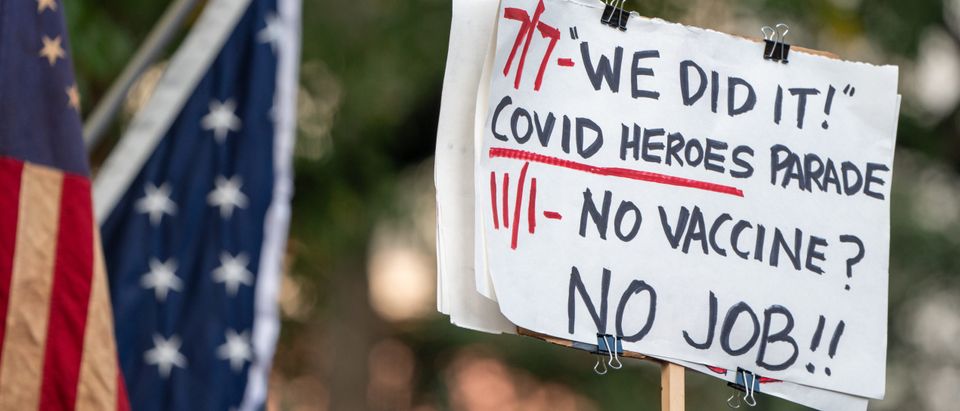The Supreme Court refused on Friday to block Maine’s vaccine requirement that health care workers get the coronavirus vaccine without any room for religious exemptions.
The order came from an emergency application and gave no reasoning for their decision.
The three conservative justices Clarence Thomas, Samuel Alito and Neil Gorsuch dissented, noting the challenge might succeed on the merit that it violates the First Amendment.
“As we have seen, Maine has so far failed to present any evidence that granting religious exemptions to the applicants would threaten its stated public health interests any more than its medical exemption already does,” the dissent reads. “This case presents an important constitutional question, a serious error, and an irreparable injury.”
BREAKING: By a 6-3 vote, the Supreme Court rejects a challenge to Maine’s COVID-19 vaccine mandate for health care workers. The challengers complained that the mandate lacks religious exemptions. Thomas, Alito, & Gorsuch dissent.https://t.co/h0xz8BVhl4
— SCOTUSblog (@SCOTUSblog) October 29, 2021
“Where many other States have adopted religious exemptions, Maine has charted a different course. There, healthcare workers who have served on the front line of a pandemic for the last 19 months are now being fired and their practices shuttered. All for adhering to their constitutionally protected religious beliefs. Their plight is worthy of our attention. I would grant relief,” the dissent continued. (RELATED: Iowa Passes Legislation Allowing Those Fired For Refusing Vaccine To Collect Unemployment)
The state was sued by a group of unvaccinated workers who argued the mandate violated their religious liberty by not allowing for religious exemptions.
Maine has required healthcare workers to be vaccinated against several diseases without room for a religious exemption under a law enacted in 2019, The New York Times reported. There are narrow medical exemptions allowed.
Gorsuch, writing the dissent, said health care workers “who have served on the front lines of a pandemic for the last 18 months, are now being fired and their practices shuttered” for “adhering to their constitutionally protected religious beliefs.”
Barrett sided with the majority in allowing the mandate to proceed, noting she did not have the opportunity to read the whole brief and oral arguments to make a decision, CNN reported.


